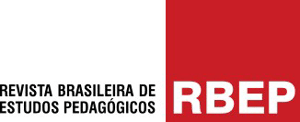This study approaches the conceptions of subject and education in relation to Portuguese language teaching in basic education. We revisit Bakhtin (2006), who emphasizes the individual's position and participation in their process of constitution as a social being, subject to external forces that act on them in different levels and in varied proportions. These forces are capable of influencing their constitution as a member of the community in which they leave their mark. In the enunciation, the subject is immersed in a social situation. He/she then needs to adapt himself/herself to the immediate context and to interlocutors, in order to interact via language. In this sense, text/discursive genres - as social-historical formations established by social interaction - are the mechanisms through which communication is made possible. A student-interaction-based instruction through oral and writing skills should take such genres as objects in fostering the development of discourse competence in real situations. There lies the true core of teaching: constructing students' capability of interfering in the pursuit of meanings, which would make them become agents of their own history.
subject; language conception; Portuguese teaching; text genres
